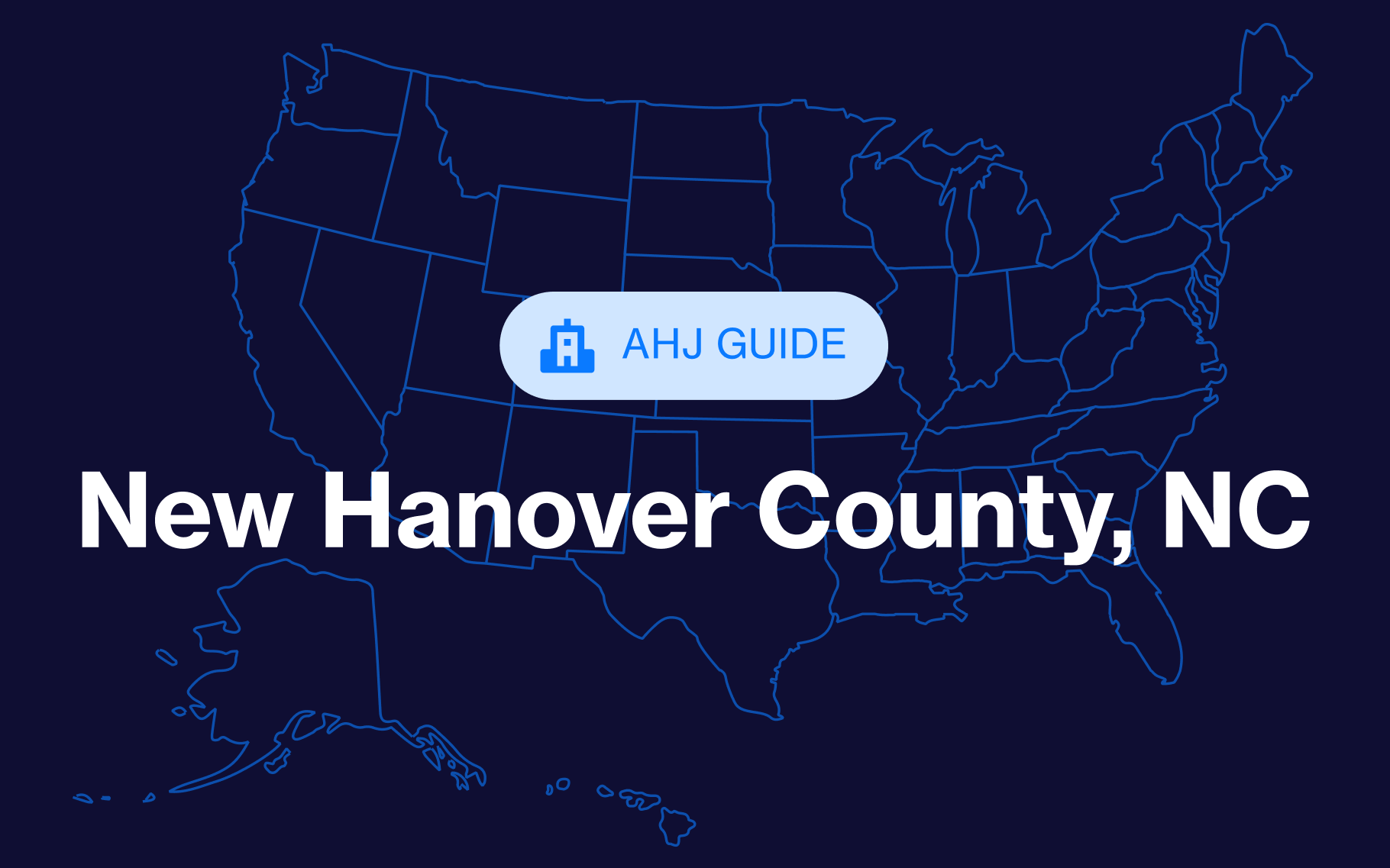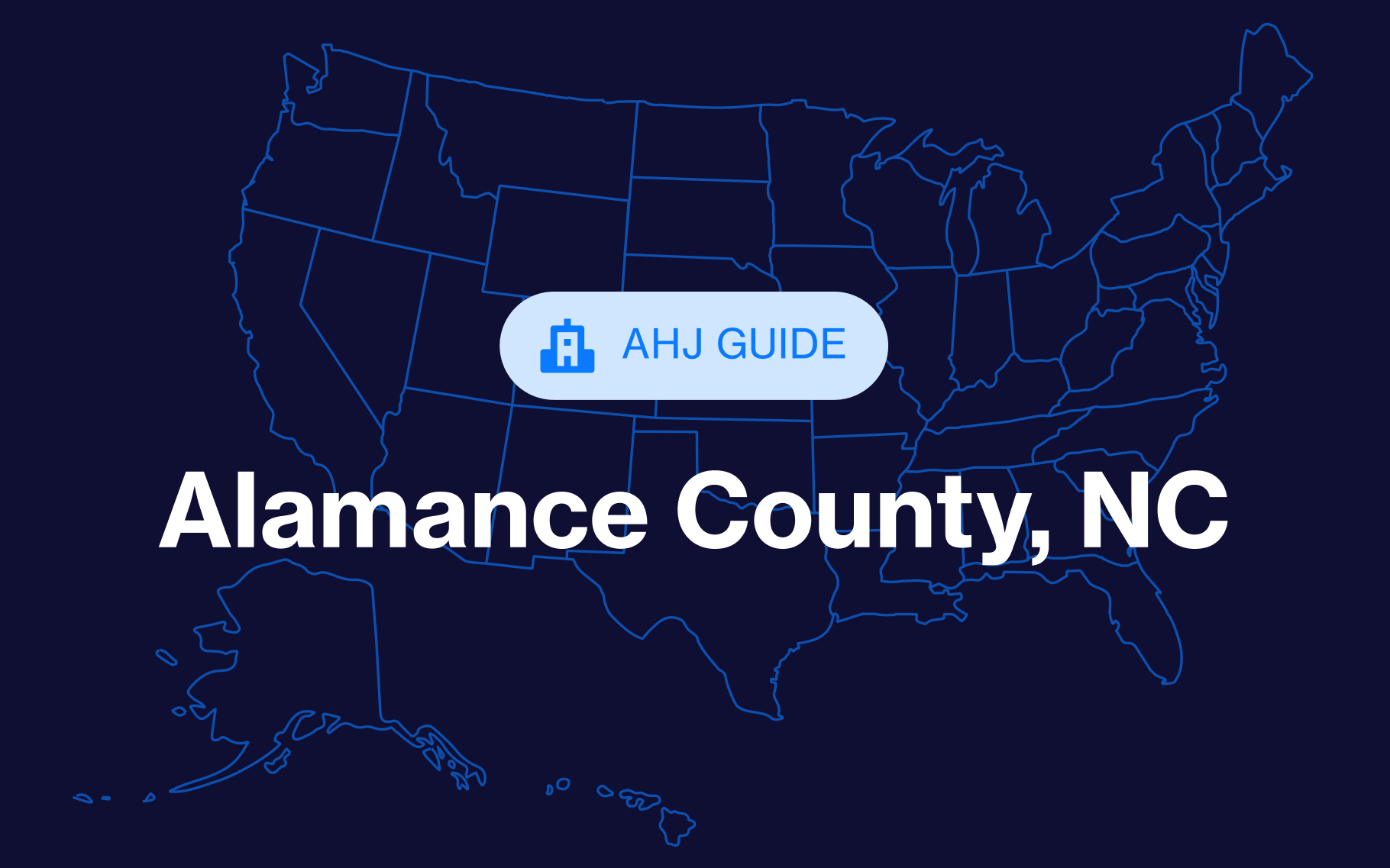If your construction business is based in or expanding into North Carolina, you’ll need to understand the state’s permitting landscape. While the state follows many standard practices in line with the North Carolina Building Code and state statutes, there are important nuances at the local level that can impact your timeline, budget, and overall project delivery.
We’ve compiled the foundational permitting information construction professionals need to confidently start projects in North Carolina. This article breaks it all down, from what requires a building permit to how to apply, including costs, timelines, and special considerations like erosion control plans and trade-specific permits.
What requires a building permit in North Carolina?
In North Carolina, projects that generally require a permit include:
- New construction, additions, structural alterations
- Electrical, plumbing, HVAC work
- Demolition or site relocation of buildings
- Trade work on mechanical, gas, or electrical systems
- Land-disturbing activities that need erosion control plans under the Sedimentation Pollution Control Act
Exemptions apply for work under $40,000 on residential projects (like replacing windows or minor electrical fixtures) but this doesn’t typically apply to commercial builds.
Who issues building permits in North Carolina?
Permits are issued by local government inspections or building departments — whether at the city, town, or county level. For example, in Charlotte/Mecklenburg County, the Mecklenburg County Code Enforcement issues building, electrical, plumbing, and mechanical permits. Smaller counties like Currituck and Fayetteville will manage permitting directly.
North Carolina building permit requirements
To apply for a building permit in North Carolina, you’ll need:
- A completed permit application, project details, and project valuation
- Construction plans prepared and sealed by a licensed engineer or architect as per GS 160D-1110
- Trade permits issued separately for electrical, plumbing, mechanical, and gas systems
- Erosion control plan and sedimentation permit if land-disturbance is involved
- Licensed North Carolina contractor or owner-builder affidavit if under $40,000
- Proof of insurance and bonds per local laws
North Carolina building permit costs
Building permit fees vary depending on the jurisdiction you’re located in. Below, we list a few representative areas so you can understand the different fee structures in different parts of the state:
Be sure to budget for a plan review, issuance, trade, tech, re-inspection, and late-start fees. It’s better to be under budget in regards to plan review fees as opposed to receiving a surprise fee that wasn’t accounted for.
Unique considerations when permitting in North Carolina
- $40,000 exemption cap
- Residential projects under $40k may bypass permits, but commercial construction will always require a permit.
- Separate trade permits
- Electrical, plumbing, mechanical, and gas each require distinct permits in commercial builds.
- Plan review timelines
- North Carolina law states residential reviews must start within 15 business days, or fee refunds apply. Commercial permits also follow similar timelines.
- Erosion and sedimentation control
- Any land-disturbing activity mandates an approved plan under state law.
- Fee reporting transparency
- Local governments must track permit fees in their inspection departments and report them annually.
How to get a building permit in North Carolina
- Determine jurisdiction
- Identify what city or county your project is located in.
- Pre-submittal meeting
- Schedule planning session to clarify building codes, trade requirements, erosion needs, and fee estimates.
- Prepare and submit
- Submit application, sealed plans, trader permit applications, erosion control, contractor license, insurance, and fees.
- Plan review
- Local department will then review plans. Commercial review times may vary — always check jurisdiction timeframes during this stage.
- Permit issuance
- Pay issuance fees, pick up the permit, and initiate inspections for footing, framing, trades, and final.
- Inspections and closeout
- Schedule inspections sequentially. Obtain the final sign-off and Certificate of Occupancy.
Note: In North Carolina, permits will expire if a project doesn’t begin within 6 months. Track your timelines diligently to ensure your project is ready to break ground as soon as a permit is approved.








